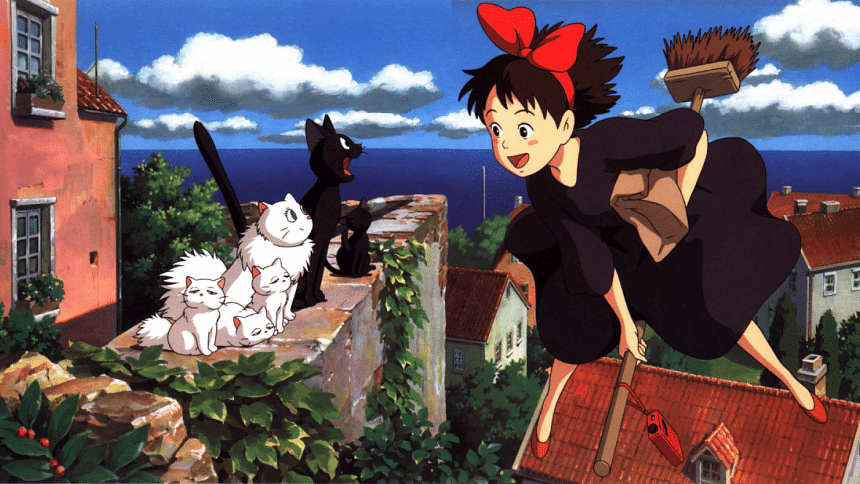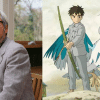How Kiki’s Delivery Service Relates to Every Young Creative

Hayao Miyazaki's award-winning animated 1989 movie, Kiki's Delivery Service, is the perfect allegory for modern young creatives trying to make it on their own.
Like almost all Studio Ghibli movies, Kiki's Delivery Service is set in a world filled with magic and escapism. But underneath all the whimsical scenery, lies a plot about the struggles a young individual faces in a capitalist society and the burnout that can result from it.
The story follows Kiki, a young witch in training, and her cat Jiji, as they embark on a journey far from home searching for life experiences. Soon enough, Kiki realises that life in the city isn't as easy or magical as it seems, and for the first time in her life, she has to fend for herself.
Kiki has to work extra hard to get by in an economy that doesn't value her unique abilities. When she realises that her skills have no value, she is forced to find a solution that will allow her to monetise her art -- a flying delivery service.
We've all suffered from feeling unprepared or not experienced enough when we start on our first jobs. Compared to the other young witch she meets on her journey, who is confident, composed, and seems ready to take on the world, Kiki feels incompetent.
This feeling is especially relatable: young adults being told they need special skills and years of experience they couldn't possibly have before getting a job. Kiki can't relate to kids her age who aren't going through the same struggle and seem more privileged.
Anyone who has ever attempted a career as an artist will know, the world isn't always so welcoming.
It seems almost absurd that a skill as impressive as flying is deemed worthless just because society doesn't see an economic value in it. Kiki, like most of us aspiring creatives, is a starving artist. Like Kiki's flying, our ability to write, sing, or paint aren't given its proper value. Artists have to work twice as hard, if not more, to make a name for themselves, but with significantly less or no pay.
Society has conditioned us into believing that a career in the arts is a lost cause. But work, we must, to earn a living.
Kiki begins to lose herself in her work, to the extent that she stops taking care of herself. She has to develop a work-life balance that doesn't completely wear her out, which is an uphill battle.
More often than not, we don't realise that we are burning ourselves out, constantly juggling work, social life, and our mental and physical well-being. Towards the middle of the movie, Kiki becomes so burnt out and sick that she can barely get up from bed. She loses her ability to fly.
The thing that brought her so much joy is now just a chore, a part of work that she is obligated to do to survive.
People say "Do what you love, and you won't have to work a day in your life". But what happens when you make your hobby your job, and suddenly you don't find happiness in it anymore? What happens when your whole identity revolves around your ability to perform well at work, and suddenly you lose that?
Just as she is about to give up, her friend Ursula comes to the rescue, reminding Kiki to take a break.
"Take long walks, look at the scenery, doze off at noon... Don't even think about flying. And then, pretty soon, you'll be flying again!"
She reminds Kiki that self-care is essential, and the movie tells us we all need a reminder to take a little break sometimes and just enjoy the view.

 For all latest news, follow The Daily Star's Google News channel.
For all latest news, follow The Daily Star's Google News channel. 








Comments